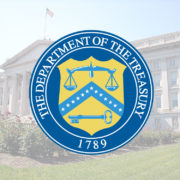A United States Treasury official this week said the U.S. government is monitoring the flow of money into the Philippines.
Sigal Mandelker, U.S. Treasury Undersecretary for Terrorism and Financial Intelligence, said money has come from unidentified sources to finance alleged terror groups.
“We continue to monitor terrorist financing related to Manila. But, of course, this scenario is what we continue to watch closely,” she said at a teleconference with reporters.
When asked if the flow of funds from terror groups in the Middle East to local groups in Southeast Asia had also been monitored by the U.S., her response was: “I can’t go into the specifics.”
“But generally speaking this is something that we monitor very carefully and the subject of information and cooperation with regional partners,” Mandelker added.
Foreign Affairs Secretary Teodoro Locsin Jr., who co-sponsored United Nations Security Resolution 2462 on combating terrorist financing, affirmed the Philippines’ commitment to fighting terrorism on March 28.
“Money is the livelihood of terrorism,” he said before the United Nations Security Council. He also cited the Philippine government’s initiatives to stop foreign groups from funding terrorist groups in the country.
According to Locsin, while remittance agencies “have been used as a channel for terrorist financing, the challenge is to balance the requirements of counter-terrorism and the needs of OFWs, as remittances account for 9.8 percent of the country’s gross domestic product.”
The need to monitor funds going to non-profit organizations was cited by Locsin as well as the relationship between terrorism and illegal drug trade.
Locsin also said he was working on amendments to the Human Security Act to address the exploitation of cyberspace to promote terrorism.
The 2018-2022 National Anti-Money Laundering and Countering the Financing of Terrorism Strategy were adopted by the country.
Regarding the Philippines’ counter-terrorism efforts, Locsin said those were “anchored on respecting human rights because of the country’s overriding responsibility to protect the law-abiding against the lawless and the innocent against those threatening their safety and wellbeing.” (Ritchel Mendiola/AJPress)






